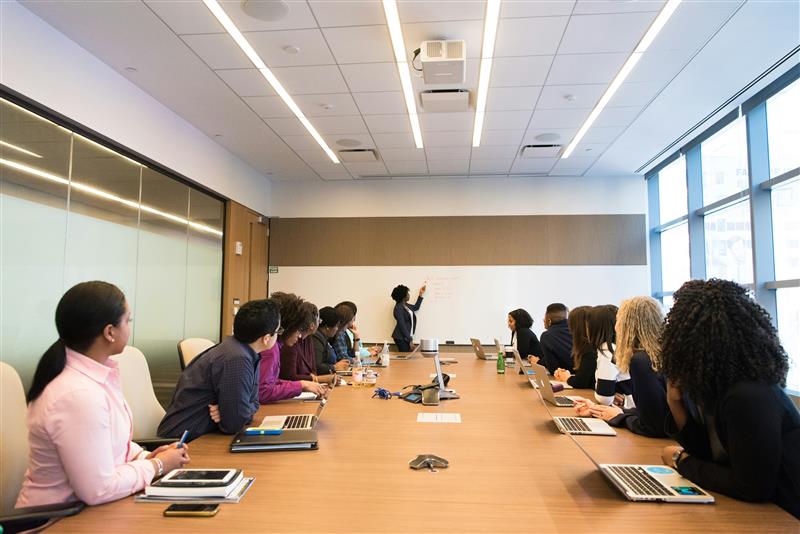THE END OF THE ROAD FOR DEI?
15/04/2025

15/04/2025
Is DEI (Diversity, Equality & Inclusion) dead, alive, or on life support? It depends on who you believe, although the answer is far from black-and-white. For every organization doubling down on their DEI commitments, others are either retreating or questioning its value. Five years ago, it was a very different story. The anger that followed the killing of 46-year-old African American George Floyd by a white police officer spurred the corporate world into looking at and beefing up its DEI credentials. Fast forward to today, and the debate is all about perspectives rather than who has the better equality record. DEI’s supporters believe that inclusive workplaces are more important than ever in a volatile world, whereas critics deride it as an empty buzz-phrase underpinned by performative gestures. So, who’s right, and where does it leave the business community? To make sense of this debate, it’s worth examining DEI’s strengths and the benefits to corporates.
On the surface, DEI has more working in its favour than against. What’s not to like about initiatives to help companies build diverse, inclusive, and equitable workplaces? Having the right tools in place allows firms to both connect with and recruit people from different socioeconomic groups, especially those from traditionally marginalized communities. The economic case for DEI is equally powerful: diverse companies are more attractive to potential employees, perform well financially, and are generally more innovative. A 2020 study of a thousand US firms, by the global management specialists McKinsey & Company, found that businesses with higher levels of gender and ethnic diversity were more likely to outperform their industry peers. But although the positives are good, the mood music around DEI is souring, and politics is largely to blame.
In the United States, DEI has become a battleground issue. President Donald Trump has described DEI schemes as “dangerous, demeaning, and immoral,” and similar sentiments have also been echoed by other high-profile voices. Hedge fund manager Bill Ackman called DEI “inherently inconsistent with basic American values,” while Elon Musk has dismissed it as “propaganda words.” These perspectives reflect a broader conservative backlash that views DEI initiatives as divisive and counterproductive. Critics argue that DEI schemes place too much focus on quotas, potentially sidelining qualified individuals from majority groups and fostering deep resentment. However, this argument oversimplifies the complexities of systemic inequality.

For corporations, the politicization of DEI has created an uncomfortable dilemma. Should they maintain their commitments to inclusivity, or pivot in the opposite direction to align themselves with shifting political winds? Already, major companies like Walmart, Meta, Amazon, and McDonald’s have scaled back or eliminated their diversity policies. The trend suggests a potential domino effect, with more organizations considering whether DEI is worth the investment.
On the other hand, companies like Apple, Microsoft, and Costco remain steadfast in their DEI efforts, demonstrating that inclusivity and profitability are not mutually exclusive. The question is whether these commitments can withstand mounting pressure or if they, too, will succumb to political and economic realities.
Meanwhile, across the Atlantic, UK companies are watching these developments with a mixture of curiosity and caution. British firms often look to their US counterparts for trends, although when it comes to DEI, the response has been more measured. Thanks to legal frameworks like the 2010 Equality Act, many UK organizations already have robust structures in place to promote inclusivity. However, the law cannot shield them from the cultural and political challenges that DEI faces globally.

The potential for US shareholders to influence British subsidiaries adds another layer of complexity. UK firms with American ties must navigate a delicate balance between staying true to their values and meeting the expectations of their stakeholders. For now, many are doubling down on DEI, using it as a differentiator in the global marketplace. Vodafone’s Reconnect initiative and Aviva’s commitment to diverse leadership are examples of how UK businesses are innovating in this space.
For DEI to thrive, businesses must move beyond performative gestures and embrace meaningful change. This begins with leadership. Companies need leaders who not only understand the value of DEI but who are also willing to champion it as a core organizational priority. Training programs, mentorship opportunities, and clear metrics for success are essential for translating vision into action.
Engaging employees is another critical component. Organizations should create spaces where workers feel heard and valued. Regular surveys and feedback sessions can provide insights into employee experiences and highlight areas for improvement. Transparency is key; employees are more likely to support DEI initiatives if they see genuine efforts to address their concerns.
When it comes to recruitment, diversity should be more than a checkbox. Casting a wider net for talent – considering candidates from nontraditional backgrounds, different industries, and underrepresented groups – can enrich organizational culture and drive innovation. Partnerships with community organizations, universities, and advocacy groups can also help companies connect with diverse talent pools.
Technology can also play a role. Tools that anonymize applications can help eliminate unconscious bias in hiring. Similarly, data analytics can track DEI metrics, providing organizations with actionable insights to refine their strategies.
Despite the criticisms, the case for DEI remains strong. Research consistently shows that diverse teams outperform their homogeneous counterparts, particularly in problem-solving and creativity. Inclusivity fosters a sense of belonging, which in turn boosts employee morale and retention. In a globalized world, organizations that reflect the diversity of their customers are better positioned to meet their needs.

Beyond the business case, DEI is a moral imperative. It represents a commitment to fairness, equality, and respect for every individual. By nurturing inclusive environments, organizations contribute to a society where everyone has the opportunity to succeed.
Despite being savaged in the media as “woke ideology”, DEI appears to be holding up better in the UK than the United States. As someone who benefited from DEI initiatives, I can testify to their transformative power. These programs opened doors that might otherwise have remained closed, allowing both me and my colleagues to build careers in an industry where diversity was once a rarity. While there is always room for improvement, the progress made so far is worth celebrating and protecting.
The road ahead will not be easy. DEI faces significant challenges, from political pushback to economic pressures. However, with strong leadership, clear strategies, and a genuine commitment to inclusivity, businesses can overcome these obstacles and create workplaces that are diverse, equitable, resilient, and innovative.
In a world that often feels polarised, DEI offers a path towards unity and understanding which is why it’s up to all of us – employers, employees, and communities – to keep that vision alive.